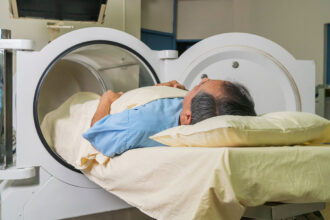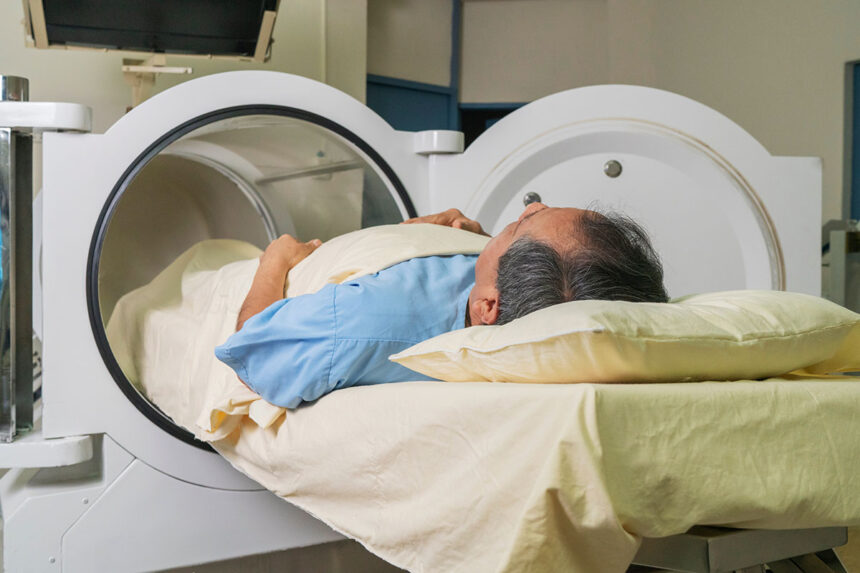Chronic illnesses, once considered irreversible, are now being challenged by the innovative world of biohacking. This movement, rooted in self-experimentation and lifestyle optimization, is transforming lives and offering hope to individuals battling long-term health issues. From reversing diabetes to alleviating chronic fatigue, biohacking is proving that the body’s innate ability to heal can be harnessed with the right tools and strategies.
The human body has an incredible capacity to heal itself if we are willing to support it.
Dr. Mark Hyman, physician and advocate of functional medicine.
This blog dives into real-life case studies of patients who successfully reversed chronic illnesses using biohacking principles. Drawing insights from research, personal experiences, and scientific literature, including findings from the National Center for Biotechnology Information (NCBI), we’ll explore how these breakthroughs happened.
What is Biohacking?
Biohacking is the practice of making intentional changes to one’s biology to enhance health, performance, and longevity. It ranges from simple interventions like dietary changes and exercise to advanced techniques involving technology and supplementation. The core idea is to use science-backed methods to take control of your health in a personalized and measurable way.

Popular biohacking strategies include:
- Nutrigenomics: Tailoring nutrition to your genetic makeup.
- Intermittent Fasting: Restricting eating windows to optimize cellular repair and metabolism.
- Sleep Optimization: Enhancing rest to support immune function and mental clarity.
- Stress Management: Using mindfulness and relaxation techniques to combat chronic stress.
- Exercise Routines: Combining aerobic and resistance training for comprehensive health benefits.
Case Study 1: Reversing Diabetes with Targeted Interventions
The Challenge:
Diabetes is a chronic illness that affects millions globally, leading to complications like heart disease, neuropathy, and kidney damage. Traditional treatments often focus on managing symptoms rather than addressing root causes.
The Biohacking Approach:
One patient, a 52-year-old woman diagnosed with type 2 diabetes, adopted a biohacking regimen that included:
- A low-carb, high-fat ketogenic diet to stabilize blood sugar levels.
- Daily intermittent fasting (16:8 pattern) to enhance insulin sensitivity.
- Supplementation with berberine and magnesium, which are known to support glucose metabolism.
- Regular strength training to build muscle and improve metabolic health.
The Outcome:
Within six months, the patient experienced significant improvements. Her HbA1c levels dropped from 8.5% to 5.9%, effectively reversing her diabetic condition. Her energy levels improved, and she no longer required medication to manage her blood sugar.
Case Study 2: Overcoming Chronic Fatigue with Biohacking
The Challenge:
Chronic fatigue syndrome (CFS) is a debilitating condition characterized by extreme tiredness, brain fog, and physical weakness. Conventional treatments often fail to provide relief.

The Biohacking Approach:
Tim, a 34-year-old entrepreneur, turned to biohacking after struggling with CFS for years. His protocol included:
- Sleep Hygiene: He optimized his bedroom environment with blackout curtains, a white noise machine, and a strict sleep schedule.
- Dietary Adjustments: Tim eliminated processed foods and focused on whole, nutrient-dense meals rich in omega-3 fatty acids and antioxidants.
- Cold Therapy: Daily cold showers to reduce inflammation and boost mitochondrial function.
- Stress Reduction: Regular meditation and yoga sessions to calm his nervous system.
The Outcome:
After three months, Tim reported a 70% improvement in his energy levels. Brain fog dissipated, and he was able to return to work full-time. His biomarkers, including cortisol levels and inflammatory markers, showed significant improvement.
Case Study 3: Reversing Autoimmune Symptoms
The Challenge:
Autoimmune diseases like rheumatoid arthritis (RA) and lupus are marked by the immune system attacking healthy cells. These conditions often lead to chronic pain and inflammation.
The Biohacking Approach:
Sarah, a 45-year-old mother of two, was diagnosed with RA. She adopted the following biohacking practices:
- Elimination Diet: Identifying and removing trigger foods like gluten, dairy, and processed sugars.
- Gut Health Optimization: Taking probiotics and eating fermented foods to restore her microbiome.
- Infrared Sauna Therapy: Regular sessions to reduce systemic inflammation.
- Functional Movement: Gentle exercises like Pilates and stretching to maintain joint mobility.
The Outcome:
Over a year, Sarah’s joint pain and swelling significantly reduced. Her reliance on medication decreased, and her quality of life improved. Her doctors noted a reduction in autoimmune activity based on her lab results.
The Science Behind Biohacking
Research supports many biohacking techniques as effective interventions for chronic illnesses. For instance, a study in the National Center for Biotechnology Information (NCBI) highlighted the role of personalized nutrition and lifestyle changes in managing chronic conditions. Key findings include:
Genes load the gun, but environment pulls the trigger.
Dr. Francis Collins, geneticist and former director of the National Institutes of Health (NIH).
- Diets rich in anti-inflammatory foods can mitigate symptoms of autoimmune diseases.
- Intermittent fasting promotes autophagy, a cellular cleanup process that helps repair damaged tissues.
- Stress management techniques like mindfulness lower cortisol levels, which are often elevated in chronic illnesses.
Key Biohacking Strategies for Reversing Chronic Illnesses
- Personalized Nutrition: Tailoring diet to individual needs can optimize metabolic health and reduce disease symptoms.
- Intermittent Fasting: A proven method to regulate blood sugar and enhance cellular repair.
- Physical Activity: Regular exercise improves cardiovascular health and supports weight management.
- Sleep Optimization: Quality sleep is essential for recovery and immune function.
- Stress Management: Mindfulness, meditation, and yoga can significantly reduce chronic stress.
Ethical Considerations and Risks
While biohacking offers promising results, it’s important to approach it cautiously:

- Always consult with a healthcare professional before starting any biohacking regimen, especially if managing a chronic illness.
- Over-reliance on supplements or extreme interventions can have unintended consequences.
- What works for one person may not work for another; personalization is key.
Final Thoughts
Biohacking represents a paradigm shift in how we approach chronic illnesses. By empowering individuals to take control of their health through informed, science-backed strategies, it offers a path to not just manage but potentially reverse these conditions.
The case studies presented here highlight the transformative potential of biohacking. While it’s not a substitute for medical treatment, it can be a powerful complement to traditional approaches, helping patients achieve better outcomes and a higher quality of life.
Whether you’re battling a chronic illness or simply looking to optimize your health, the principles of biohacking can provide valuable tools for your journey. Remember, your body has an incredible capacity to heal—it just needs the right support.
Recent Insights into Chronic Illnesses and Biohacking
“Methylation Diet and Lifestyle for Biological Age Reversal”
A groundbreaking study explored how an 8-week lifestyle intervention focused on diet, sleep, stress reduction, and exercise reversed biological aging markers by 3.2 years on average. This suggests that targeted biohacking strategies can potentially reverse age-related decline.
Read the full study here
“Using Intermittent Fasting to Reverse Type 2 Diabetes”
Case studies published in BMJ Case Reports showed how patients with type 2 diabetes reversed their condition through intermittent fasting. This eating pattern improved insulin sensitivity and reduced the need for medications.
Explore the research here
“The Role of the Gut Microbiome in Autoimmune Disease Reversal”
Emerging research underscores the impact of gut health on autoimmune conditions. Probiotic-rich diets, elimination of processed foods, and microbiome optimization have been shown to significantly reduce inflammation and autoimmune symptoms.
Learn more about the gut-autoimmune connection
“Functional Medicine and Personalized Biohacking for Chronic Illness”
Functional medicine practitioners are combining biohacking techniques, like nutrigenomics and detoxification protocols, to treat chronic illnesses like fibromyalgia and chronic fatigue syndrome. Success stories abound, but personalized plans are key.
Discover the personalized approach
“The Anti-Inflammatory Benefits of Sauna Therapy”
Infrared saunas are becoming a popular biohacking tool for reducing systemic inflammation, improving cardiovascular health, and alleviating symptoms of autoimmune diseases. Recent studies validate their efficacy.
Read about sauna therapy benefits
These case studies and insights reveal how biohacking strategies can empower individuals to overcome chronic illnesses, reclaim their health, and achieve a better quality of life. Always consult healthcare professionals before embarking on biohacking interventions.

























